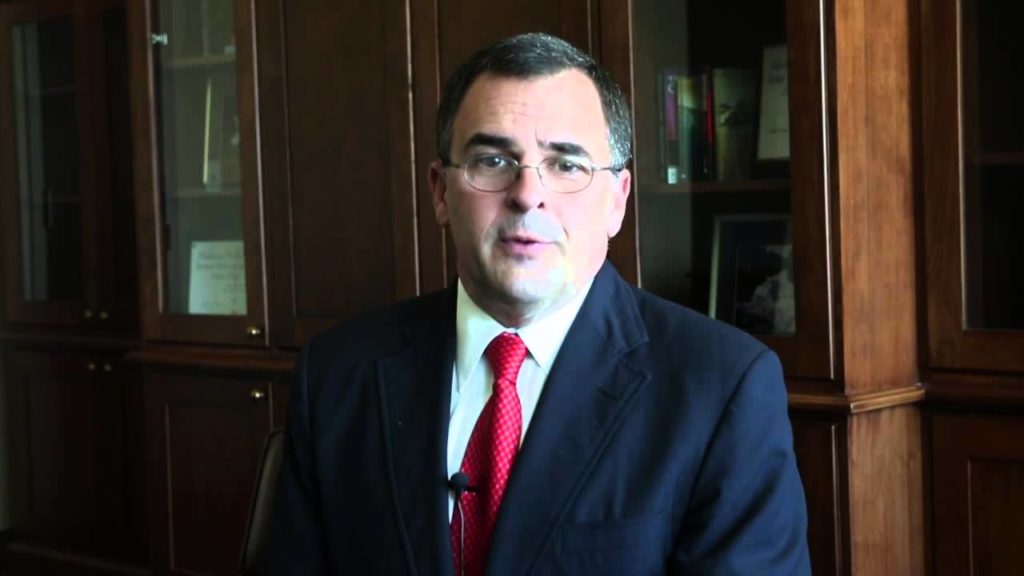Parker Snider: Learning fiscal responsibility from the fall of MoviePass

One year ago, a relatively-unknown company announced that, for a monthly fee of $9.95, subscribers could see one movie a day without paying anything at the box office. That’s right – even though the average movie ticket in the U.S. is $9 – a $9.95 monthly subscription could get you into 31 movies. Since last August, three million film-goers have subscribed to MoviePass, the company offering this seemingly too-good-to-be-true service. Profitability aside, the service worked. Many subscribers did, in fact, see movies day after day. Blockbusters like the 8th Star Wars film were viewed repeatedly by fans and, as loyal subscribers became the most company’s most potent salesmen, MoviePass’ subscription rate skyrocketed. Things didn’t stay rosy forever, though. The weekend before eventual $2 billion-earner Avengers: Infinity War hit theatres in late April, MoviePass conveniently announced that they would no longer allow repeat viewings of one movie. This was the beginning of the end. In the weeks following, MoviePass declared a slew of changes to their service, including blackouts of popular movies and surcharges to other films that, at times, were more expensive than buying a ticket without MoviePass (i.e. an $8 surcharge for a $5 movie). In late July, MoviePass subscribers found the system unavailable and customer service unresponsive. The company, as expected, finally ran out of cash. Although MoviePass was able to secure another loan to stay above water, the company’s future is in serious doubt. As of publication, the stock of MoviePass parent company Helios & Matheson Analytics is trading at a lowly $0.07. The best way to learn, some say, is from failure. Alabama residents and lawmakers alike, therefore, should learn from the demise of MoviePass. The lesson? The importance of fiscal responsibility. Fiscal responsibility first demands a healthy sense of realism. MoviePass lacked realistic expectations and now needs another “another $1.2 billion”, according to CNN. The truth is that our public policy discussions are full of MoviePass-like hopes: ideas that are well-intentioned but simply lack realistic expectations. A system of government-sponsored “basic income”, in which residents receive generous sums of money for living expenses, is one recent example of this type of idea. Fiscal responsibility also requires honesty. Unlike MoviePass’ perhaps-knowingly deceptive relationship with its customers, policy-makers with accurate understandings of finance and economics must be honest – off and on the campaign trail – about the financial viability of certain public policies. Lofty campaign promises made in full view of a different post-election reality do nothing but increase expectations and, when these expectations aren’t met, decrease trust in government. The problem is that, like MoviePass, giveaway ideas like these become popular fast, and often for good reason. These proposals are hopeful, compassionate, and promoted by people who genuinely believe they will work. Often, however, the “how” gets ignored, those who understand the likelihood of failure stand silent, and the project collapses. Instead of giving credence to unrealistic and unlikely proposals, Alabama residents and lawmakers should realistically and honestly engage public policy ideas that have the potential to succeed, not just for an official’s time in office, but in the long run. These ideas may be not be as dramatic or fashionable as MoviePass, but they just might work. ••• Parker Snider is Manager of Policy Relations for the Alabama Policy Institute, an independent, nonpartisan, nonprofit research and educational organization dedicated to strengthening free enterprise, defending limited government, and championing strong families.
Chris Pringle to chair new House Standing Committee on Fiscal Responsibility

Mobile-Republican State Rep. Chris Pringle has been selected to chair the new House Standing Committee on Fiscal Responsibility, a panel that will focus its attention on increasing accountability and combatting the waste, misuse, and abuse of taxpayer dollars. Monrovia-Republican and Alabama Speaker of the House Mac McCutcheon made the announcement Tuesday. “Since 2010, the Alabama Legislature has passed several initiatives designed to tighten the reins on state spending and maximize returns on the taxpayers’ dollars, but there is more work yet to be done,” McCutcheon said. “The Standing Committee on Fiscal Responsibility will focus its full attention on considering measures that streamline the budgeting and spending process and implement needed efficiencies.” Pringle, who received the Business Council of Alabama‘s coveted Business Champion Award in 2015, said he looks forward to the challenges that lie ahead as he and his committee members work to ensure taxpayers get maximum results from the dollars they send to Montgomery. “A classic movie tells the story of some miners who dig a tunnel underneath the local saloon and become rich by gathering the gold dust that simply falls between the floor boards, and that is similar to our mission,” Pringle said. “We’re going to start examining the biggest pile of dollars in the state treasury and then drill down to the smallest cent as we seek ways to cut costs and save money while maintaining and improving services.” First elected to represent District 101 in the Alabama House in 2014, Pringle previously served as a member of the body from 1994 to 2002. A graduate of the University of Alabama, he is a licensed realtor with Southern Timberlands and is a licensed home building and general contractor. Joining Pringle on the committee, which was created by a House resolution during the 2017 regular session, are: Vice Chairman Chris Sells (R-Greenville), Ranking Democrat Rod Scott (D-Fairfield), Corley Ellis (R-Columbiana), Matt Fridy (R-Montevallo), Danny Garrett (R-Trussville), Reed Ingram (R-Montgomery), A.J. McCampbell (D-Livingston) and Patricia Todd (D-Birmingham).
Roy Moore’s charity management calls his “fiscal responsibility” into question

Roy Moore is pitching himself as the fiscally conservative candidate in the special senate election, but the public facts and figures of his charity paints a different picture. Moore, the former Alabama Supreme Court Chief Justice, has been associated with the Foundation for Moral Law (FML) for years, and anyone who has taken a gander at the charity’s ledger would be justified in questioning him when he touts his “fiscal responsibility.” FML has run a deficit for six of the past seven years, which peaked at over $400,000 in 2011, one of the many years Moore served as its president. While charities aren’t supposed to be in the business of making money, Alabama voters have reason to pause over the the fact Moore ran FML into the red while simultaneously pulling out a million bucks in donated money to pay his and his wife’s salaries for working only 20 hours a week. Surely Moore could have taken a pay cut to keep the charity’s finances in order, but his exorbitant pay on the backs of hardworking people who thought they were funding a Christian organization is just one of many examples of his money foibles. Take the charity’s office building in downtown Montgomery, for instance. That cost FML $445,130, not to mention the hundreds of thousands in renovations. Seriously, these renovation receipts are about as un-Alabama as it can get. Among the questionable expenditures that are raising eyebrows $16,000 for drapes, $1,812 on credenzas, and a clock for two grand. These are while the charity was running a deficit. The voters will have a say in a few weeks and they need to make it with hard and fast facts not slogans. Roy Moore may be saying he’s a real fiscal conservative but his drapes and debt says otherwise.
Ben Carson talks responsibility as senators question cuts

Housing Secretary Ben Carson defended the sharp budget cuts facing his agency even as he promised senators Wednesday that he would strive to help the most vulnerable Americans. Appearing before Congress or the first time since joining President Donald Trump‘s Cabinet, Carson said his agency was committed to “doing more with less.” Trump’s 2018 budget proposal calls for cutting $7 billion from the $48 billion budget for the Housing and Urban Development Department. That includes gutting the popular $3 billion Community Development Block Grant program, which funds a variety of local projects across the country. The program has done wonderful things, Carson said, “but there has been mission creep to the point where we have those dollars being used for spay and neuter clinics and flowers along highways.” He said at a time of tight budgets, “we have to be able to concentrate on what our primary goals are.” But senators from both parties questioned the cuts. Democratic Sen. Chris Coons of Delaware noted that HUD’s own website touts that the CDBG program has created thousands of jobs, supported tens of thousands of single-family home rehabilitation projects and helped over 200,000 seniors. “I could spend the rest of the afternoon giving you concrete and specific examples of how CDBG been used in my home county, home state and across this country,” Coons said. The chair of the panel, GOP Sen. Susan Collins of Maine, suggested Congress may not agree to the cuts. She told Carson the budget proposal is “just a first draft,” with lawmakers ultimately having the final say on spending plans. The administration’s plan also would cut about $2 billion from the department’s rental assistance programs, to $35.2 billion. One proposal would increase the tenant contribution toward rent from 30 percent of adjusted income to up to 35 percent of gross income, a higher category of income. Republished with permission of The Associated Press.


